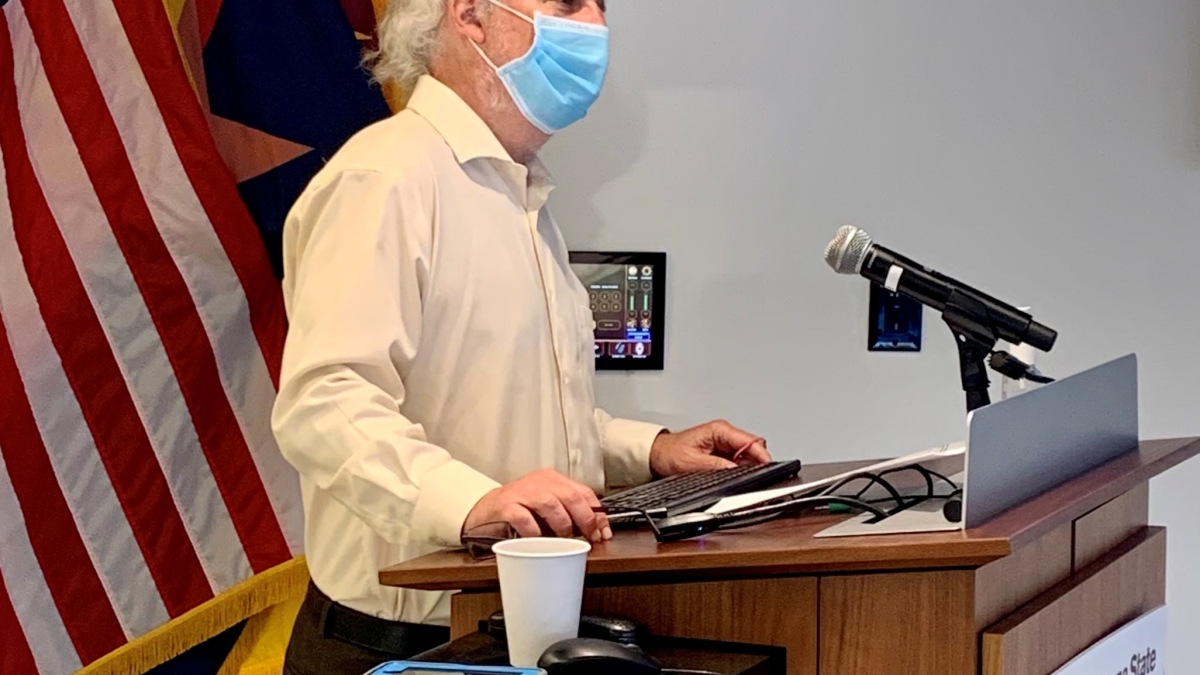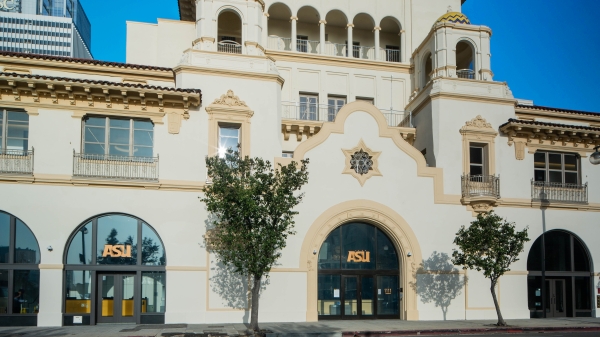ASU students gain valuable global election perspective from leading election law expert

ASU Law Professor Larry Garber teaching at the ASU Barbara Barrett and Sandra Day O’Connor Washington Center.
As the 2020 general election approaches, the Sandra Day O’Connor College of Law at Arizona State University recently caught up with Professor Larry Garber, an election law expert and adjunct professor who created and is teaching a U.S. and International Election Law class in Washington, D.C.
Garber brings ASU Law and the International Rule of Law and Security program a wealth of experience in the election law field. During his career, he served in senior election law and international development positions, including senior associate for electoral process at the National Democratic Institute, mission director for West Bank and Gaza at the U.S. Agency for International Development, and the leader of numerous election observation missions around the world. His “Guidelines for International Election Observing,” published in 1984 at a time of democratic transformations around the world, provided structure to the field of election observation.
Garber, who is teaching at the ASU Barbara Barrett and Sandra Day O’Connor Washington Center, shared his perspective on why the class is important and what he hopes students gain from the experience. ASU Law also heard from Garber’s students on how much they are learning about elections and election law at a critical time for elections domestically and globally.
Albi Cela, an international ASU Law Master of Laws student from Albania, said that it is “amazing” to be a part of the class and learn from Garber’s 35 years of global experience.
“I would refer to Professor Garber, actually, as the Michael Jordan of elections,” said Cela in a video capturing his comments along with those from JD students Angela Matturro and Brent Bihr.
Learn more from Garber in the following Q&A and view the students’ video here:
Video by ASU Law
Question: How did the U.S. and International Election Law class get started?
Answer: The class had its origins in my work with the Election Reformers Network, which I and several colleagues established in 2017 to share lessons from our experiences overseas with election reformers in the United States. Since forming, we have supported efforts to reform our system for electing officials, including Electoral College reform and ranked-choice voting, and our administrative processes, such as encouraging formation of independent redistricting commissions and independent election management boards. I thought it would be interesting to share the comparative work that we were doing in a setting where I could talk about both legal and political considerations.
Q: Why is the class so important, especially at this time?
A: The class emphasizes several points relevant to our current times – specifically, conducting elections during a pandemic and in a hyperpartisan political environment taking into consideration:
a) Credible elections are critical to democracy, and hence we must be prepared to conduct them in even the most challenging circumstances.
b) While countries vary greatly in terms of their electoral systems, there is much that can be learned by examining the experiences of other countries, particularly in administering an election under duress.
c) Despite the pandemic and the hyperpartisanship, the U.S. has quite strong institutions that are designed to mediate competing perspectives. Obviously, courts have played and continue to play a major role, but it is also important to examine the role of other actors, including legislators, executive bodies, media, law enforcement and others.
Q: What do you hope students will take away from the class?
A: I hope they see elections through new lenses, and particularly appreciate the challenges associated with the following subjects:
- Developing and reforming an election system in a country like the U.S. with a 230- year tradition of holding elections, but also a hyperfederal system of government.
- Administering an election during a pandemic or post-conflict.
- Empowering a judiciary with the implicit authority to decide cases that essentially determine who will govern for the next several years.
- Being a responsible citizen in a democratic country.
Q: Any comments on this year’s general election?
A: I will distribute a poll during class next week, asking students to offer predictions with respect to various issues pertaining to the upcoming election. As I will make clear, even the most astute observer of this election should be humble in trying to predict the possible outcomes.
Read more on Garber’s experiences in this interview in the International Rule of Law and Security Dispatch newsletter.
More Law, journalism and politics

School of Politics and Global Studies director's new book explores mass violence
Why do people commit atrocities and why are certain groups, including religious and ethnic, more vulnerable to large-scale…

ASU faculty contributing to improvement of Wikipedia
Many academics have a love-hate relationship with Wikipedia. While the website has information about almost anything you can…

ASU Law students gain vital experience through Los Angeles location
Students at the Sandra Day O’Connor College of Law at Arizona State University may be concentrated in the school’s downtown…